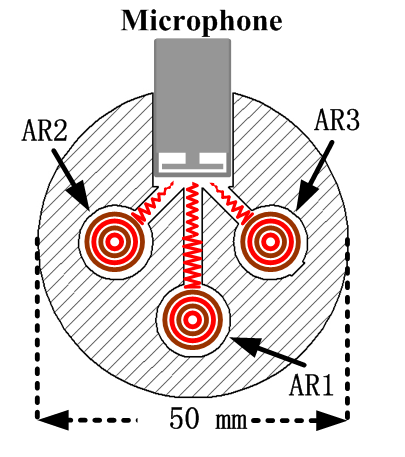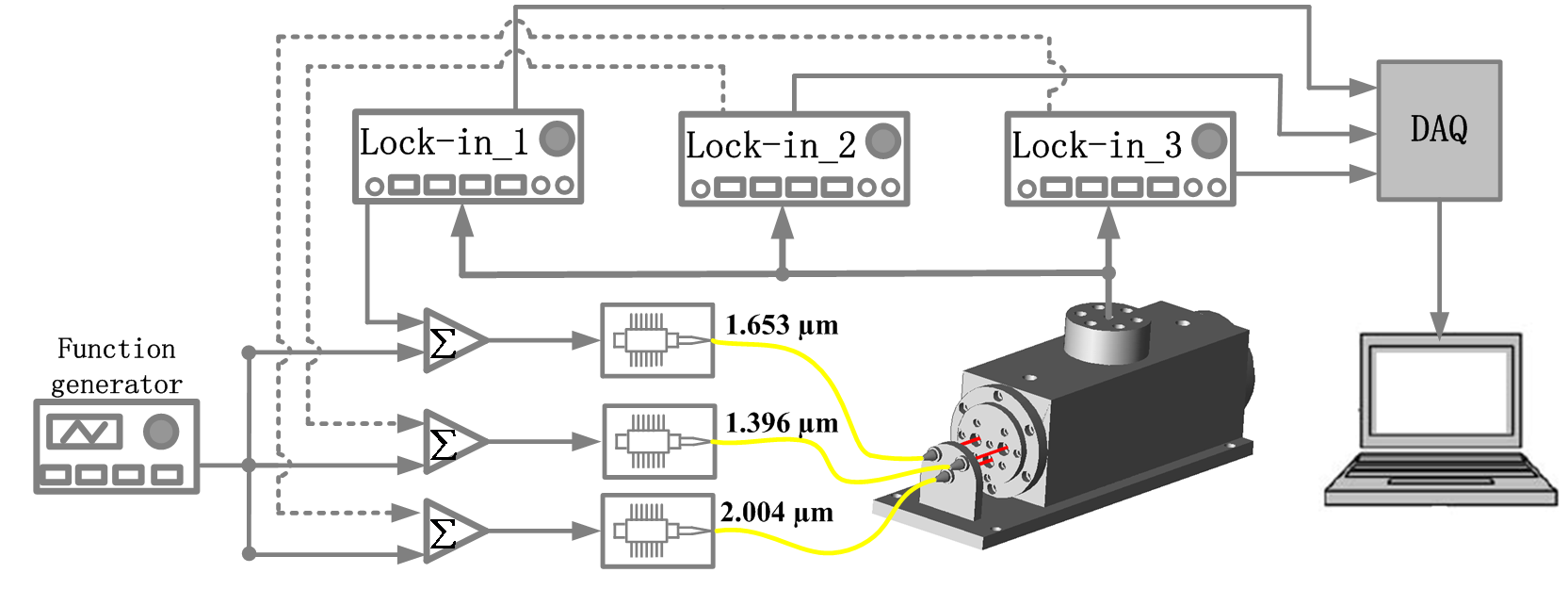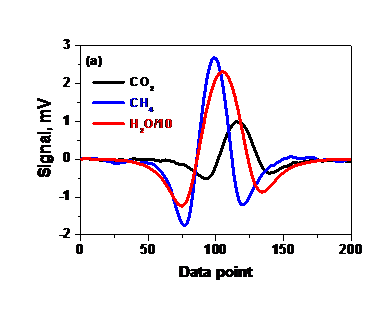
Just very recently, LIU Kun, member of Prof. GAO Xiaoming's group at Anhui Institute of Optics and Fine Mechanics (AIOFM), Hefei Institutes of Physical Science innovated a multi-resonator photoacoustic spectroscopy (MR-PAS) which offers multi-laser operation to simultaneously monitor multiple pollutant species using a single photoacoustic spectrophone.
Photoacoustic spectroscopy (PAS) is a sensitive, selective and well established method to trace gas detection which has been successfully employed in numerous applications.
Actually, tuning range of most commercially available lasers is too narrow to realize multi-component detection, which puts multi-laser sources in need. However, a single acoustic resonator used in PAS operates at its own resonant frequency f0 and it is difficult to simultaneously retrieve the PAS signals resulting from different lasers for multi-component analysis (in this case, monitoring of multi-gas should be made by consequently switching corresponding laser source).
All the above lay barriers in developing a PAS sensor that could realize multi-component detection.
In LIU's novel innovation, he designed a photoacoustic cell including three acoustic resonators operating at different resonant modes, and the photoacoustic signal in each resonator was listened by a single microphone simultaneously.
In addition, he demonstrated the feasibility and performance of the innovated MR-PAS sensor by simultaneously detection of H2O vapor, CH4 and CO2 using three near infrared distributed feedback diode lasers.
The innovation of MR-PAS would significantly reduce the size of multi-laser based PAS sensor for multi-pollutant analyses, which is, in particular, very attractive for application in multi-wavelength measurements of wavelength-dependent aerosol optical absorption coefficients.
His innvation was detailed in Sensors and Actuators B: Chemical entitled "Multi-resonator photoacoustic spectroscopy".
LIU's work was supported by the National Science Foundation of China and Youth Innovation Promotion Association of the Chinese Academy of Sciences.

Geometric distribution of three multi-resonators integrated in a cylinder (Image by LIU Kun)

Schematic diagram of the MR-PAS experimental setup (Image by LIU Kun)

2f photoacoustic signals of H2O, CH4 and CO2 absorptions obtained by MR-PAS simutaniously (Image by LIU Kun)

86-10-68597521 (day)
86-10-68597289 (night)

52 Sanlihe Rd., Xicheng District,
Beijing, China (100864)

